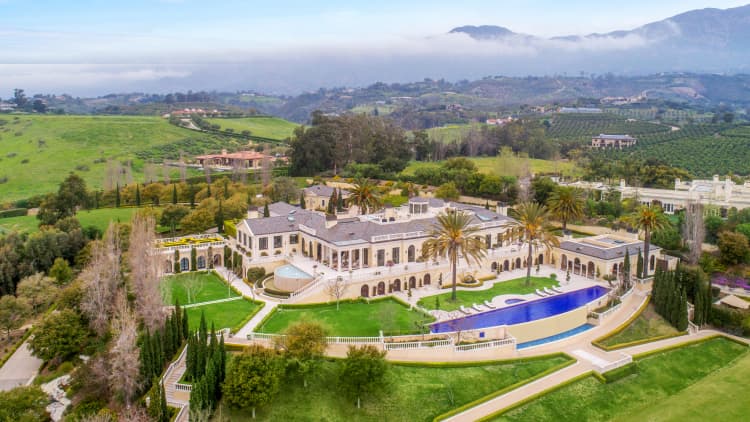If you are looking to join billionaire Elon Musk's grand plan to build a colony on Mars by 2050, you may want to get a head start by booking a night in a cabin built for life on the Red Planet.
New York City-based architecture firm Al SpaceFactory is taking a version of the NASA-award winning 3D-printed habitat it designed for life on Mars to upstate New York.
Starting in March, guests can spend a night in Tera, an eco-habitat created through space-grade technology, for $175 to $500 a night.
In August, Al SpaceFactory launched an Indiegogo campaign to raise money to build Tera, and multiple bookings have already sold out. (Al SpaceFactory says its currently working on a plan for interested people to book a night when its crowdfunding campaign sells out.)
AI SpaceFactory designed the original version of the habitat, called Marsha, for a 3D-printed planetary habitat contest by NASA and won first place. The only difference between the two habitats is that Marsha was built exclusively using fiber from a type of rock abundant on Mars called basalt, while Tera also uses other materials found on Earth, like fiberglass. Most of the materials used to build Tera are biodegradable and recyclable.
Al SpaceFactory hopes to one day make Tera-related projects for commercial use here on Earth and use it as a revenue stream to fund its space-related projects. The company says that several interested parties, including music festivals, have already been in contact to ask about building structures similar to Tera, but no projects are yet in the works.
Al SpaceFactory says its mission is to eliminate the use of traditional materials such as concrete, which negatively impacts the environment.
Here's what Tera will look like what it's completed, according to AI SpaceFactory's renderings of the project.
The two-story cabin will be nestled in the woods with views of the Hudson River.
Inside Tera, the ground floor will be the living area, equipped with a bathroom and shower, a food preparation counter and a living room with a seating area that folds out to a terrace.
The second floor, which will be accessible by a wooden staircase, will be the sleeping loft that can double as an eating and gathering area, according to Al SpaceFactory's Indiegogo's post.
Since launching its campaign last month, Al SpaceFactory has raised over $64,000, more than double its original $30,000 goal for the project.
Jeffrey Montes, chief space architect and head of space technology at SpaceFactory tells CNBC Make It that they are being "vague" with Tera's exact opening date since it is a pilot project and there are still plenty of unknowns when developing what he says it the world's first 3D-habitat using thermoplastics.
In May, Al SpaceFactory's Marsha won a $500,00 first place prize in NASA's 3D-printed habitat contest. Al SpaceFactory's team built a 15-foot-tall prototype of Marsha using a 3D-printer over 30 hours and three days without any human assistance.
Below are Al SpaceFactory's renderings of what Marsha could look like on Mars.
Montes says that as of now, NASA has no "plans for Marsha."
Like this story? Like CNBC Make It on Facebook.
Don't miss:
You can buy this private island in the Caribbean for $350,000—take a look



